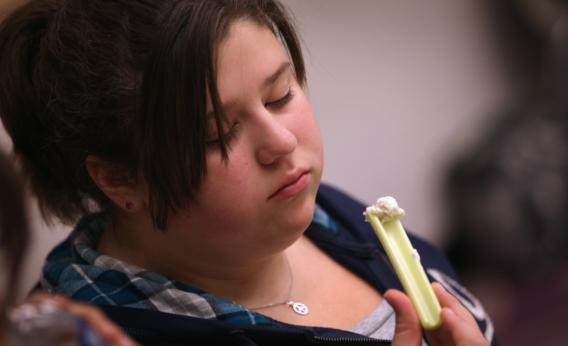If people can make themselves healthy, should we blame them for getting sick? That is the stark question raised not only by broadening acceptance of the idea that people should assume some responsibility for their health by eating right, exercising, and so forth, but also by the exciting and necessary trend toward patient empowerment.
“Don’t blame me for being fat!” said Lizmari Collazo at the recent Medicine X Conference at Stanford University, where a group of researchers, doctors, and caregivers met to discuss (among other things) the new world of patient-generated health. To his credit, organizer Larry Chu also invited a group of patients: “Don’t just talk about them,” was his message to the practitioners. “Talk with them!”
The conference discussed what is now becoming accepted wisdom. Rather than just reform health care, we should also figure out how people can maintain or regain their own health. They need to eat right (and in smaller amounts), stop smoking, drink less, and exercise and sleep more. And they should avoid too much stress, even as they follow all of these rules, monitor their vital signs, and share bio-data.
Statistically, this works. People who do these things are healthier on average. They are less likely to get cancer or to die of heart attacks; they will probably stay slim and live longer. And, yes, society’s institutions should help them to do this. Schools should provide nutrition education (and healthy lunches). Businesses should encourage their employees to be healthy by providing discounts on insurance, offering team sports, and the like.
But suppose this fails. Suppose that, despite all blandishments, someone gets diabetes through some combination of behavior and genetics (even as other people with the same behavior do not). Should they now be blamed for developing diabetes and raising health care costs? Or can they blame their parents or the state for their inability to be healthy?
Sometimes such things are simply bad luck – just as we used to think decades ago. It is important to remember that statistics is about generalities: For every 100 people who are 90 percent likely to be healthy, 10 percent will be unhealthy—and it may or may not be their “fault.” Yet we seem to be heading toward a world in which self-anointed saints and blamers face off against supposed sinners and suspects.
To be sure, it is worthwhile to foster healthy behavior, which will lower costs and improve many people’s lives. But how far do we want to go? Where are the appropriate limits when it comes to encouraging good behavior? Can good behavior be encouraged without ever punishing bad behavior?
I suspect that different societies, cultures, employers, and governments will come up with different answers. In part, we need to feel comfortable with the reality that there is no environment perfect for everyone, and there are no perfect people. In a world of statistics, it is 100 percent likely that fewer than 100 percent of people will be happy. We try to mitigate bad luck, but we cannot eliminate it.
In practical terms, though, we would be wise to listen to Collazo’s plea: “I am not a fat blob, having [unhealthy] English breakfasts, who gave herself diabetes. I AM A HUMAN, AND I HAVE DIGNITY.” Collazo identifies the problem for her—and for all of us: “Is there some diabetes that is preventable? I don’t think anyone FULLY knows the answer to that. BUT SO WHAT? Does it mean I no longer deserve dignity if I do get it? If I ‘fail’ to ‘prevent’ it? Should I now be excommunicated from the population at large? Should I be made an ‘example’ to others? Should I be spoken of as a plague? As an unwanted thing in the world?”
We should remember the old saying: Hate the sin, not the sinner. We can attempt to stop diabetes without rejecting diabetics, and to eliminate obesity without demonizing the obese.
In the end, we need to acknowledge the outliers—the people who got diabetes by chance, not by fault. Yes, they may be a minority. But, for the sake of human dignity, we must allow every one of them to claim that statistical anomaly, even as we support each of them in trying to follow the path that statistics indicate could help them to lead healthier lives.
This article was originally published by Project Syndicate. For more from Project Syndicate, visit their Web site, and follow them on Twitter or Facebook.
